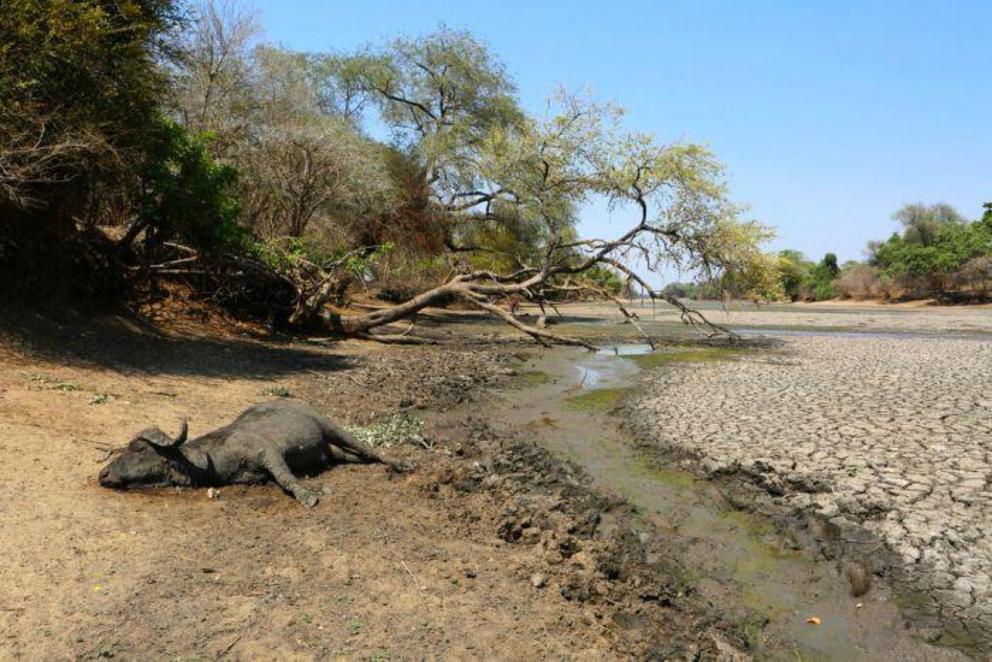Africa's southern drought is killing Zimbabwe's elephants and other vulnerable wildlife
Authorities tried to rescue this Cape buffalo but its weakness made it vulnerable to a lion attack.
Weak from hunger and thirst, an elephant struggled to reach a pool of water in a vast Zimbabwean wildlife reserve.
Key points:
- Traditional waterholes for wildlife have dried and turned into death traps
- Local conservations have ditched non-intervention and have begun feeding animals
- Poorer countries such as Zimbabwe have called for help to shoulder the financial burden
It then got stuck in the mud surrounding it, and despite park rangers freeing it, the mammal walked away only to later collapse and die.
This is just one small story of the effects of the Southern African drought which has ravaged countries such as Zimbabwe, Zambia and South Africa since late 2018.
An estimated 11 million people are threatened with hunger in nine countries in the region, according to the World Food Program, which is planning large-scale food distribution.
The countries of southern Africa have experienced normal rainfall in only one of the past five growing seasons, it said.
For animals weakening as a result of the drought this could bring an abrupt death — near the elephant carcass was one of an emaciated Cape buffalo, killed by hungry lions.
Elephants, zebras, hippos, impalas, buffaloes and many other wildlife are stressed by lack of food and water in Zimbabwe's Mana Pools National Park, whose very name comes from the four pools of water normally filled by the flooding Zambezi River each rainy season, and where wildlife traditionally drink.
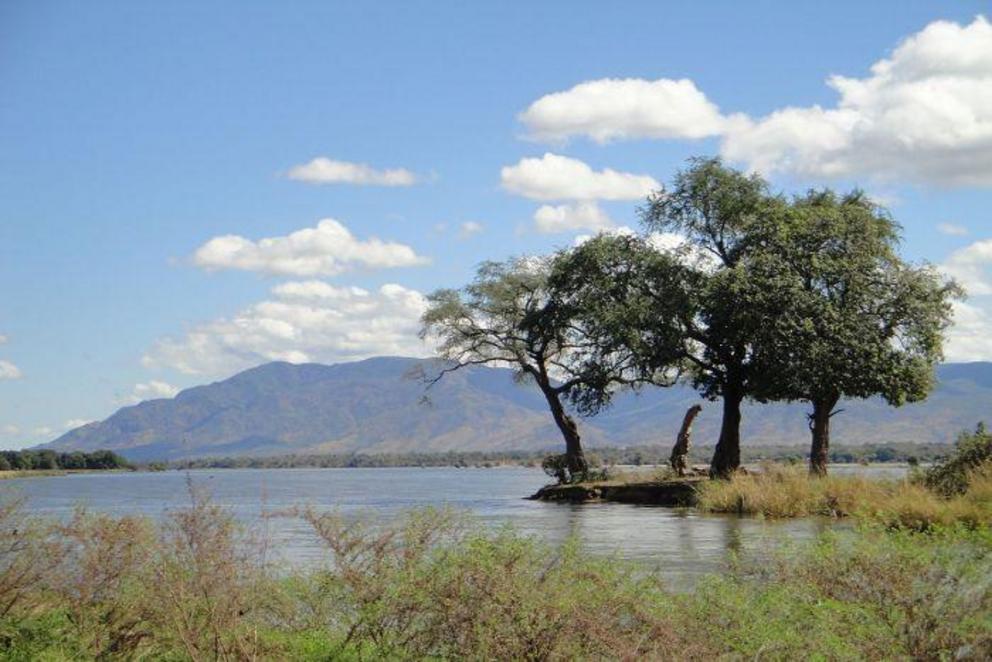
Zimbabwe has an estimated 85,000 elephants and neighbouring Botswana has more than 130,000 — combined the two countries have the largest elephant population in the world.
At least 105 elephants have died in Zimbabwe's wildlife reserves, most of them in Mana and the larger Hwange National Park in the past two months, according to the Zimbabwe National Parks and Wildlife Management Authority.
Many desperate animals are straying from Zimbabwe's parks into nearby communities in search of food and water.
But for poverty-stricken Zimbabwe — which some say is again at risk of hyper-inflation — it may be not be able to shoulder the burden of looking after booming numbers of wild elephants.
The country is pushing to be allowed to sell its ivory stockpile in spite of a global ban, and export live elephants to raise money for conservation and ease congestion in the drought-affected parks.
Drought turning flood plains into death traps
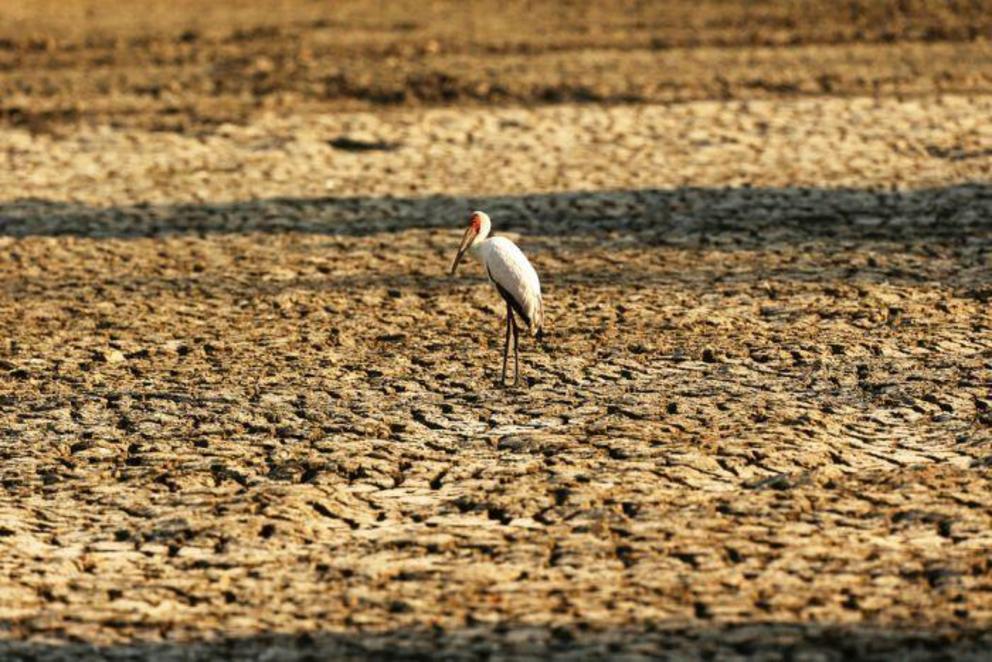
The traditional sources of water for animals in Zimbabwe have reached critically low levels.
Mana Pools, a UNESCO World Heritage Site for its splendid setting along the Zambezi River, annually experiences hot, dry weather at this time of year.
But this year it's far worse as a result of poor rains last year — even the river's flow has reduced.
"It's beginning to be serious," Munyaradzi Dzoro, a parks agency wildlife officer, said.
Separated from neighbouring Zambia by the Zambezi, the region's once reliable sources of water have turned into death traps for animals desperate to reach the muddy ponds.
Like the elephant and buffalo, many other animals in the park have gotten stuck in the clay while trying to reach Long Pool, the largest of the watering holes at 5 kilometres long.
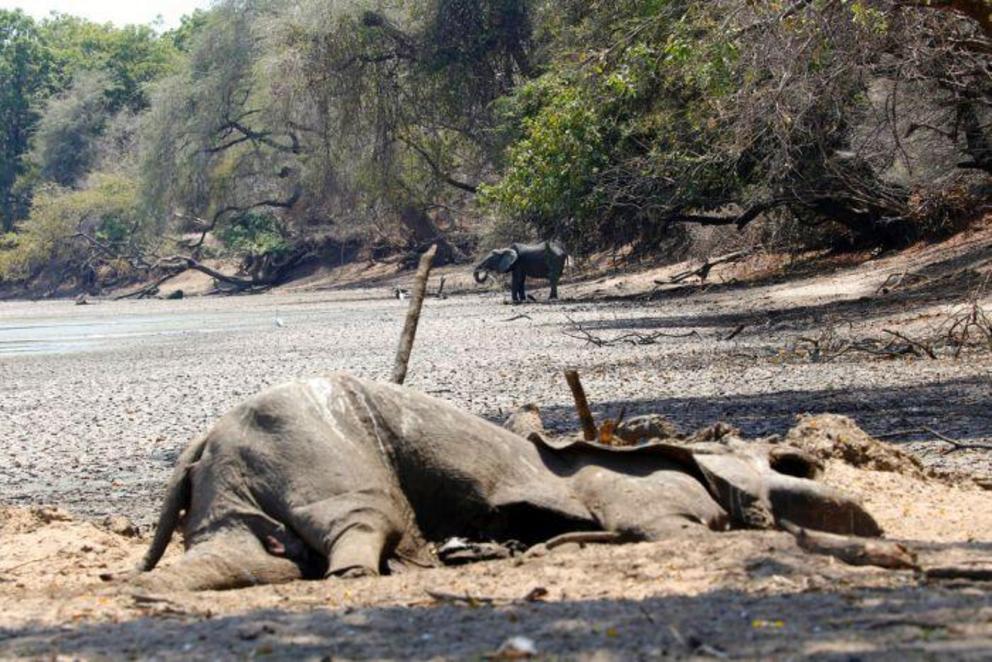
Traditional water holes in Mana Pools have trapped animals as the ground has turned into clay.
The animals were pulled out by rangers, but they could not survive predators on the pounce for weak prey.
The elephant carcass had been there for almost a week and emitted a strong stench as flies feasted on it.
At just 5 per cent of its normal size, Long Pool is one of the few remaining water sources across the park's plains.
On a recent day, hippos were submerged in some puddles to try to keep their skin from drying out in the extreme heat while birds picked at catfish stranded in the mud.
Two others of Mana's pools have completely dried up, while the third is just 20–30 per cent of its usual size and dwindling, Mr Dzoro said.
'Manipulative conservation' called on to save populations
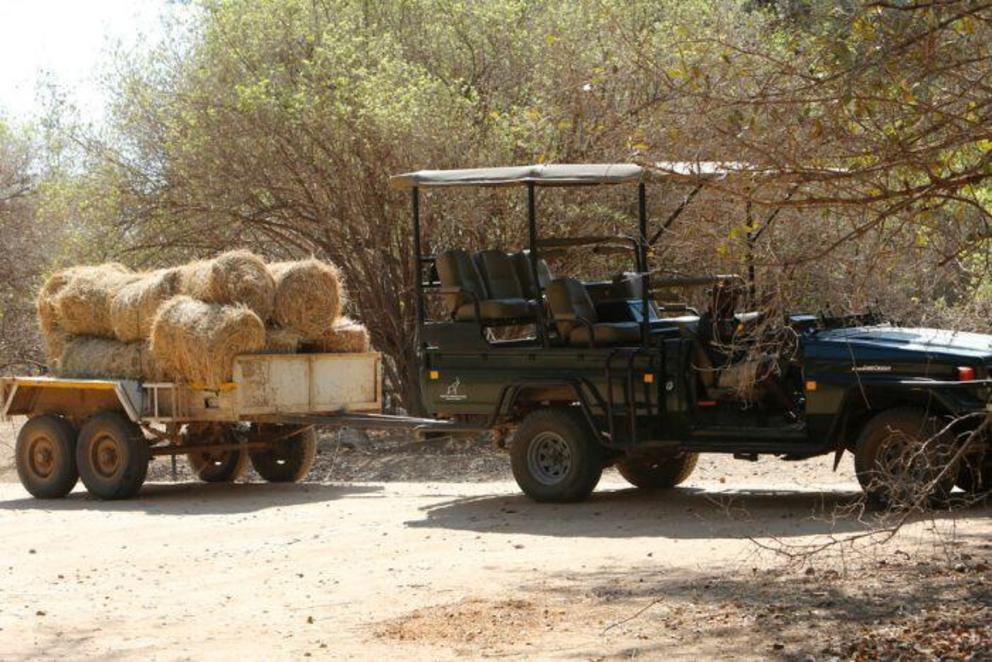
Park authorities have begun delivering food aid to animals in the park.
Seasonal rains are expected soon, but parks officials and wildlife lovers, fearing that too many animals will die before then, are bringing in food to help the distressed animals.
The extremely harsh conditions persuaded park authorities to abandon their usual conservation policy of non-intervention in July.
Trucks and tractors have ferried about 14,000 bales of hay to various locations in the 2,196-square-kilometre park.
Mel Hood, who is participating in Feed Mana, a project providing supplementary food to animals in the park, said a "very poor rainy season" resulted in a decline in vegetation for animals to feed on.
In other parts of Mana, park authorities are pumping water from deep boreholes, but the supplies are barely enough, Mr Dzoro said.
"We used to say nature should take its course," Mr Dzoro said.
"We are now forced to intervene, which is manipulative conservation, because we are not sure when and how we will receive the rain."
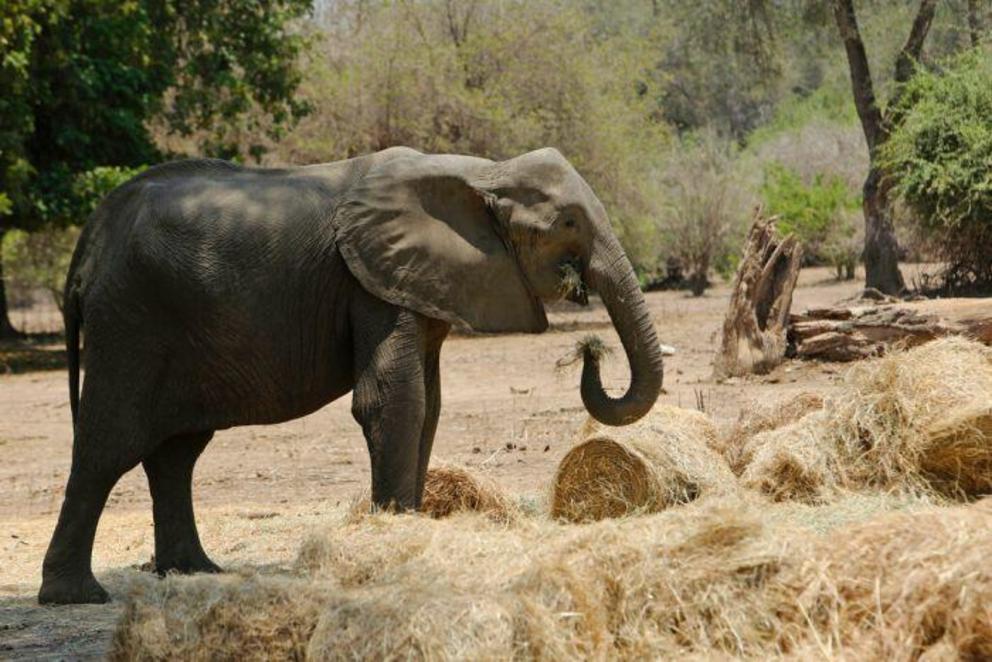
The drought has decimated the vegetation animals such as elephants have relied in for food.
Feed Mana has been appealing for "urgent" donations of items such as soy bean hay, grass and cubes made of nutritious grains and molasses.
"Although it may not be enough to stave off all the hunger pangs, it is certainly giving these animals a chance to survive until conditions improve," Ms Hood said.
At Mana Pools, saving the animals is a challenge and officials say Zimbabwe is severely affected by climate change that has changed weather patterns.
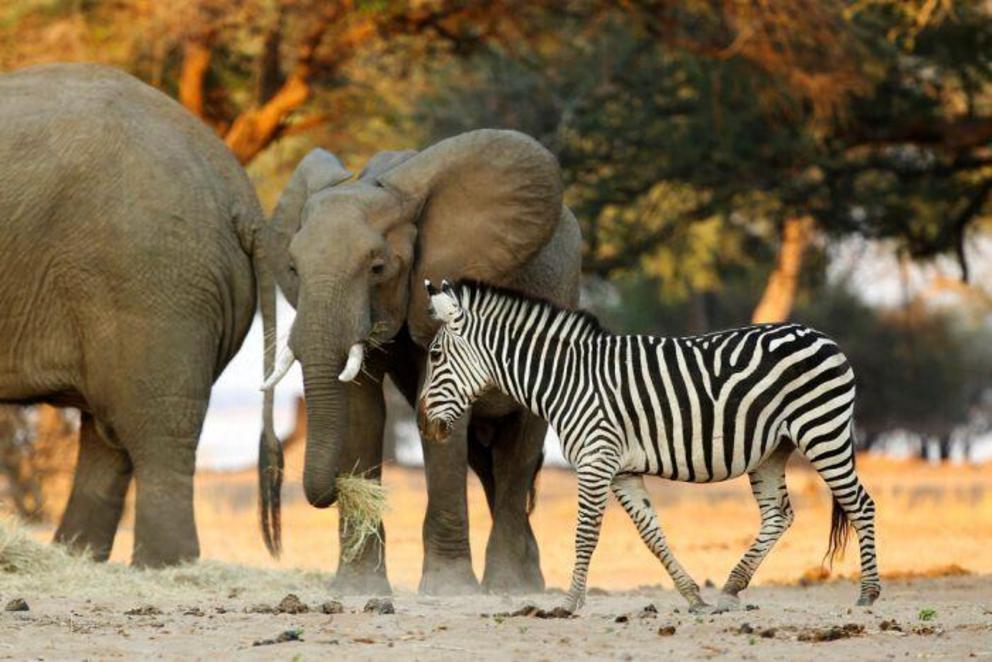
Elephants and zebras now may be dependent on food aid as the drought continues.
In past years, Mana Pools would get up to 600 millimetres of rain per year, Mr Dzoro said.
Now it's lucky to get half that.
With such a dramatic reduction Mr Drozo said Zimbabwe couldn't rely on the traditional water sources to sustain its animals.
"Climate change is affecting us. That's why the manipulative way now is the only way to rescue our fauna," he said.
"Climate change is real for sure, we are witnessing it."
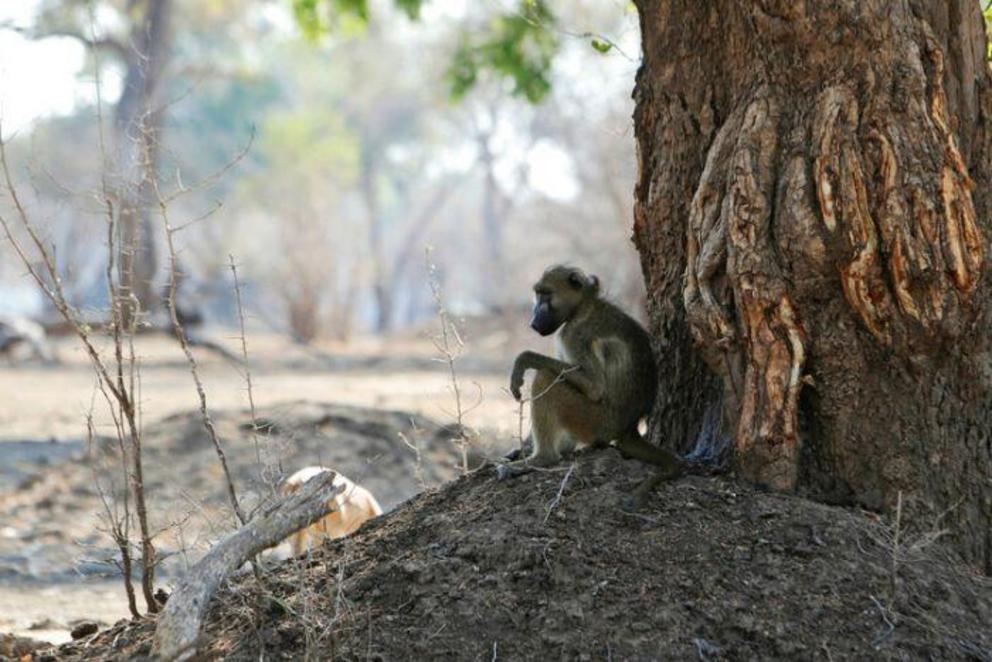
Animals such as the baboon may be forced to enter urban areas as vegetation disappears.

